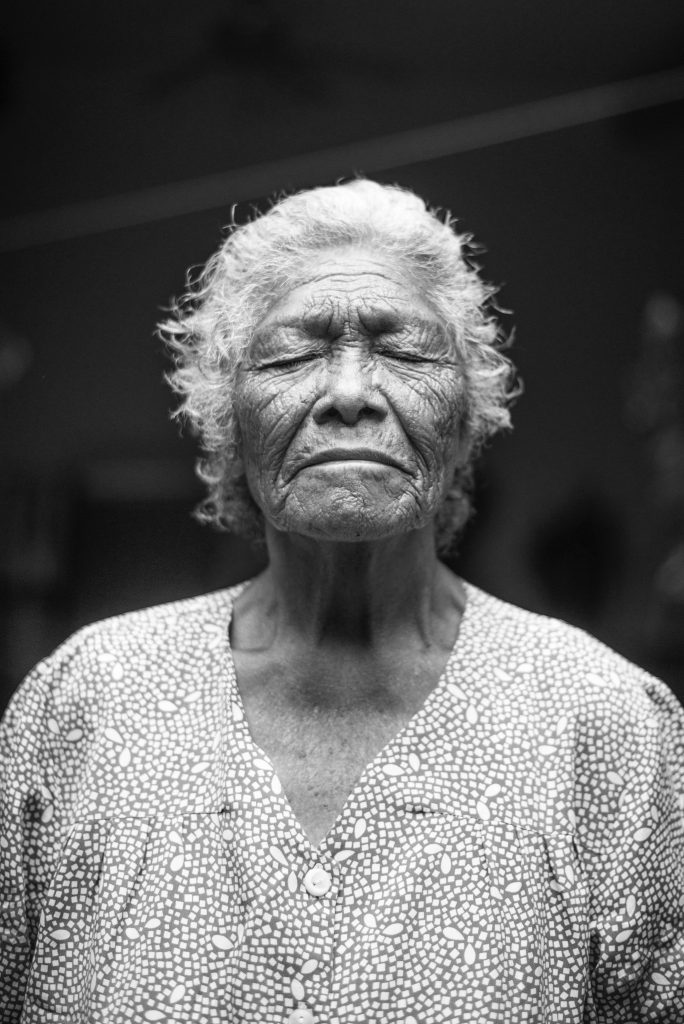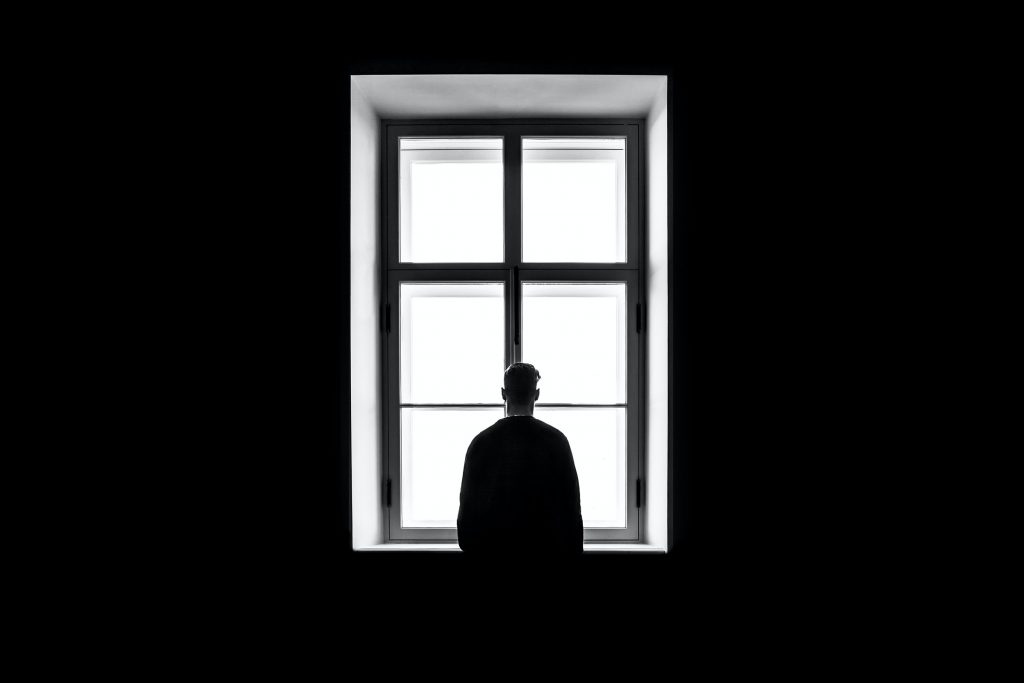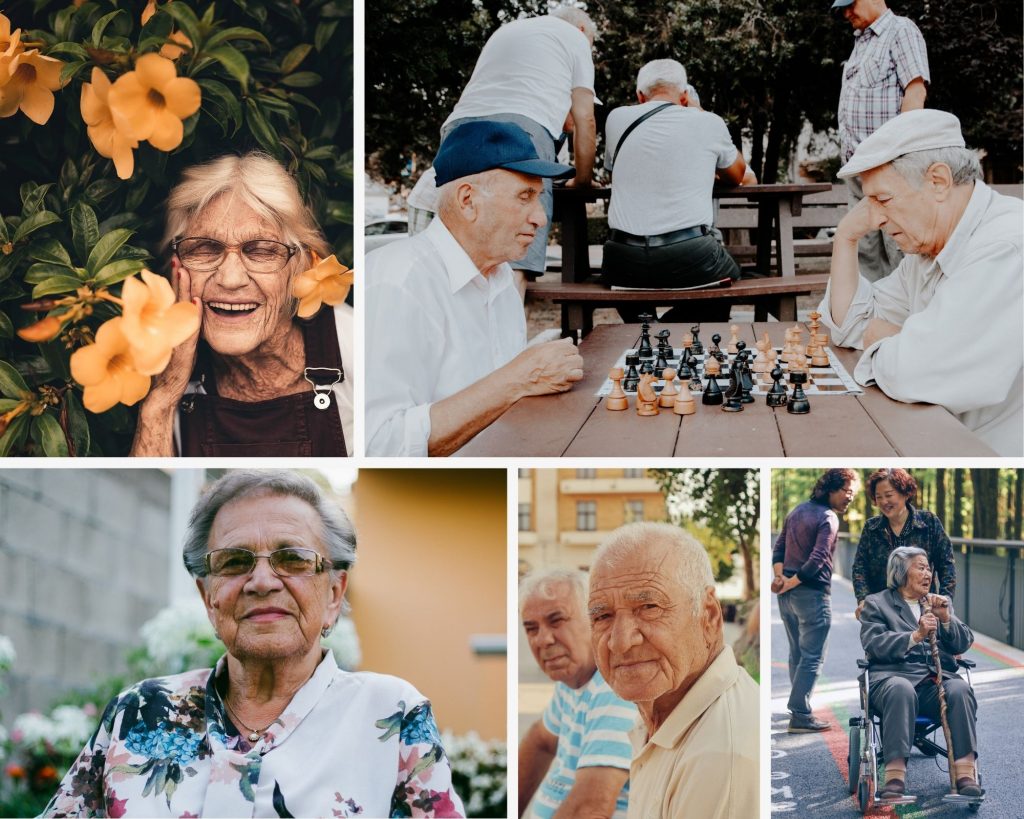Addressing Negative Perceptions of Aging
By Dr. Sophia S. Mun
Since the outbreak of the coronavirus pandemic, older adults have been identified as the most vulnerable age group to the virus. Reactions to the virus’s spread in the U.S. vary, ranging grocery stores offering specific shopping hours for elderly customers to provide additional protection to the opposite extreme of nicknaming COVID-19 “the Boomer remover.” There are many reasons people have these different responses. One of these reasons is ageism.

What is Ageism?
Ageism is prejudice or discrimination against a particular age group, especially the elderly. Along with race and gender, age is commonly used to categorize and form stereotypes about others. As with other -isms, ageism involves a very pervasive us versus them thinking, and this fuels otherness and separateness. A unique thing about ageism is that age is the only category in which the members of the in-group (the young) will eventually join the out-group (the old) in the end. There is no exception to it, because everyone is getting old, right? More importantly, negative stereotypes about aging that people have been holding since they were young do not change or disappear but become internalized such that people hold those beliefs to be true about themselves as they age. Therefore, negative stereotypes originally held about other people become negative self-perceptions of aging in later life.
Origins of Ageism
Where do negative stereotypes originate? I often hear biased descriptions of older adults from my 5-year-old son and, it turns out, negative views of and attitudes toward older adults can start early in life. We are barraged from childhood on with the negative message that aging is undesirable (You might have seen birthday cards that poke fun of older adulthood.). In a modern society that values productivity, elders are seen as less valuable because we believe that older adults are less productive and efficient. Greenberg et al. (2002) suggested that age prejudice arises from a fear of our own mortality as well. They found that merely thinking about (or seeing) an older person tends to arouse anxiety about the fact that one has a short time on earth, and the fear associated with such cognitions tends to provoke the perceiver to dislike the individual (or group) who elicits such fear. Ageism is prejudice against our feared future self (Nelson, 2005).

Effects of Negative Perception of Aging on Health
One good reason to bring more attention to this issue is that negative perceptions of aging can take a heavy toll on our health. One of the most recent and largest examinations of the health consequences of ageism found that it harms the health of older people in 45 countries and across 5 continents (the study included over 7 million participants). The research team found evidence that ageism led to worse outcomes for a number of mental health conditions, including depression, and a number of physical health conditions as well as to a shorter life expectancy. It also could lead to a poorer quality of life, compromised social relationships, risky health behaviors, and cognitive impairment (Chang et al., 2020).
Reducing Ageism
Reducing negative perceptions of aging could be a significant factor in predicting better health in later life. It also deactivates otherness and separateness in our society. Negative perceptions of aging and older adults are prevalent in many societies, embedded in societal institutions and expressed in individual perceptions and behaviors. Therefore, unless we challenge this idea, it becomes part of our identities.
So what can we do?
Fortunately, we can still make a difference. There are a lot of approaches we could employ at the institutional level, but let’s focus here on what we can do on a personal level. We can start with an awareness of our attitude, language, and behaviors about aging and older adults. And let’s take the additional step of confronting our fears about aging and loss (physical, status, social, & economic). What is the truth about your fear?

Aging is a natural, powerful, lifelong process that we are all engaged in. We need to learn from scripture about how to treat a part of ourselves and a part of our society. 1 Corinthians 12:20-25 highlights how we all play a role—different roles—in one unified body. There is no age asterisk. This is not about another specific group of people. This is about all of us.
1 Corinthians 12:20-25
20As it is, there are many parts, but one body.21The eye cannot say to the hand, “I don’t need you!” And the head cannot say to the feet, “I don’t need you!”22On the contrary, those parts of the body that seem to be weaker are indispensable,23and the parts that we think are less honorable we treat with special honor. And the parts that are unpresentable are treated with special modesty,24while our presentable parts need no special treatment. But God has put the body together, giving greater honor to the parts that lacked it,25so that there should be no division in the body, but that its parts should have equal concern for each other.

References
Chang,E.S., Kannoth,S., Levy,S., Wang,S.Y., Lee,J.E., & Levy, B. (2020).Global reach of ageism on older persons’ health: A systematic review. PLOS ONE 15(1). https://doi.org/10.1371/journal.pone.0220857
Greenberg, J., Schimel, J., & Martens, A. (2002). Ageism: Denying the face of the future. In T. D. Nelson (Ed.), Ageism: Stereotyping and prejudice against older persons (p. 27–48). The MIT Press.
Nelson, T. (2005). Ageism: Prejudice Against Our Feared Future Self. Journal of Social Issues, 61(2). https://doi.org/10.1111/j.1540-4560.2005.00402.x
23 Comments
Thank you for educating me on the idea of Ageism! I have never had any background information on how older ages can be affected differently in certain situations, but the ongoing pandemic is a great, yet unfortunate example. I also am appreciative of how we can reduce ageism and make a difference in these people’s lives.
Thank you for reading!
Hello Dr. Mun,
Before reading your post, I did not consider the reason of ageism. It was rather interesting to read that negative views of older adults can start at an early age. I always hear jokes about getting old and how aging is dreadful. It is great that we can still make a difference and that there are changes that can be made. I agree that aging is a natural and powerful process that shouldn’t be feared. I believe that as we are able to change our attitudes, the fear of aging will decrease and hopefully become more acceptable because aging is inevitable.
I agree with what you said about that we are able to change our attitudes. If we change our attitudes, the stigma of aging will hopefully decrease and we become more accepting of the inevitability that is aging. Thank you for reading and sharing your thoughts!
This was an amazing post on getting older, how we’re all afraid of it, and what we can do to overcome it! I always knew that there was a negative stigma around the elderly, and growing old ourselves, but I’ve never stopped to think about where that would stem from. I have always loved the elderly as I believe they can teach us so many valuable lessons, but also know that most people see them as less than, as they are not as capable as the younger generations. Such a good reminder that we, as a human population, don’t have a lot in common, but getting old is definitely one that we do.
It is sad to hear how people think of the elderly as less than or not as capable as those who are younger, but they can offer so much. Like you said, they can teach us many valuable lessons they have learned over the years. Thank you for reading and sharing your thoughts!
I have always had a great appreciation for the older adults in my life. With that said I do not think I realized the damaging effects of agism until now. One of the things that surprised me the most about ageism is like you mentioned we are all going to reach old age at some point. Negative stereotypes are not going to prevent the inevitable. You also mentioned that ageism sometimes stems from fear of mortality and I agree. As a person who does not fear mortality and hopes to live a long fulfilling life I do not have that fear others may encounter and I think it is why I have an immense appreciation for the elderly. It was not until most recently through your course I learned of gerontology. It is a field I can see myself potentially pursuing in the future. I hope to continue my appreciation for older adults by practicing some of the things you mentioned like bringing awareness to our attitude, language, and behavior to aging and older adults.
Hi Selenne, thanks so much for reading and sharing your thoughts! I appreciate your statement to practice bringing awareness (attitude, language, and behavior) because even when we don’t have explicit biases, it’s so easy for culture to slip in in a detrimental fashion. I hope that God continues to refine your interests and increase your passion for serving in our community, whether it be with the elderly or another population.
Your post was incredibly insightful and super informative. Growing up I was always taught to care and respect for elders. I did not thing of ageism as a negative thing until I read your post and it all made sense. Many individuals respect their elders and many do not. When I think of ageism im reminded of how individuals poke fun at women who reach thirty and how they are considered old. People stereotype them based on how they aren’t married yet or how desperate they should be to have babies. I love your statement on how aging should be seen as natural, powerful, and a lifelong process we should all enjoy because at the end of the day stereotyped based on age do not define us.
I am so glad that you have found this blog insightful and informative! It is really sweet to read that you grew up in an environment that cares for and respects elders! Setting an example of caring and respecting the elderly can help diminish these negative stereotypes. Thank you for reading and sharing your thoughts!
Hello,
Your post made me pause and reflect on my own thoughts about aging and my behaviors towards the elderly in my family. I do not believe that looking at my grandparents reminds me of my mortality, rather it reminds me of theirs. I realized that there is a clear difference in how my dad’s siblings and my mom’s siblings treat their parents. My dad’s side see their parents as vulnerable and they are to be protected, while my mom’s side knows they cannot stop their mother and she is fully capable of doing whatever it is she wants. I also realized I had many false perceptions about being an adult as a child and even teen. As annoying as it was to hear, there are many things I did not understand until I got older.
Thank you for sharing your thoughts on the blog and how it made you reflect personally!
Hello Dr. Mun,
There are several insightful findings you pointed out that I was not previously aware of. It is fascinating to learn how when people who hold ageism beliefs get old, instead of recognizing the falseness of those beliefs, they actually internalize them and hold it as a mirror to themselves as they age. It is heartbreaking to know that people can view a person as less valuable simply because of their age and/or appearance. The example of your 5-year-old son is also startling. We need to end the worldly stereotypes surrounding older people that say they are less worthy; especially since these stereotypes are so prevalent that even a 5-year-old has learned them. I deeply thank you for writing about this issue and I hope the mindset of how magnificent aging and growing can be will replace the fear people have towards growing older.
Thank you for your comment! I appreciate your passion on wanting to end the worldly stereotypes towards the elderly as they affect them and harm the perspectives of younger generations. I hope the same as you that the mindset will shift to see it as something positive and not negative.
Hello Dr. Mun,
Thank you for sharing and educating me on the top of ageism. At my age, I see people my age look down upon people who are older than them. For me, I have never understood why and the reasoning behind this was. Maybe, because we as a generation are so soaked in technology that we find it hard to understand those who live in a lifetime where technology was less advance but to me, that is not a valid reason. To me, the older generations are who we should turn to for advice and knowledge as they have the wisdom of experience. As they have most likely lived through a situation we are presently encountering.
The older generation do have some wonderful insights on life with their years of experience and should be viewed more positively, than negative. Thank you for reading and sharing your thoughts!
Wow, this was very informative. I unfortunately did not realize the negative effects of ageism during the pandemic. This has reminded me to be aware of my words and behavior in any situations. It is important to not accept the bias of everyone else because it is an easy answer, but rather learning and forming the truth and being aware of every situation. This was a great reminder of how powerful our life is and what God has intended our life to be.
So glad to hear that this opened up your eyes! Thank you for reading and sharing!
I found out a lot a about age and how we did treat it during the pandemic and how people who were older were more in the watchful eyes of others also I was surprised to see that ageism is a negative stereotype since I never really heard the word up till now and how it’s biased to older adults which definitely means to me that anything could be stereotypical even age.
personally I don’t think that becoming old is all that bad because I want to be that cool grandpa that everyone is like hey likes go to pee paws house
Hello, Dr. Mun,
I found the data on ageism very interesting it was something I did not know, but also did not think much about. Aging is something many people do not want to think about, mostly due to all the negative effects that happen due to aging. I think changing our mindsets about aging is one way to change all the fear and perceptions on aging.
Thank you, Dr. Mun for your insight on ageism. Until I had read your post, I did not realize how normalized ageism has become. Throughout my educational experience, I have noticed that some students tend to have snide attitude towards elderly teachers, librarians, cafeteria staff, and janitors. They were very cruel and did not respect the staff. While they didn’t deserve to be treated that way, I can see how some of that behavior could have been fueled by fear of mortality and perceived lack of value.
Thank you for sharing Layla!